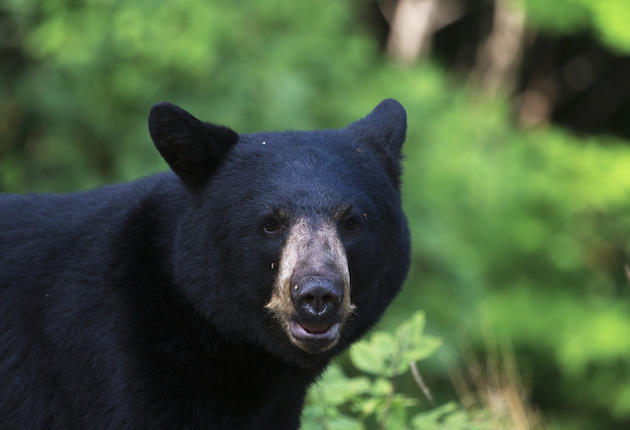Protestors tried desperately to thwart a black bear hunt in Florida, but not only did the hunt proceed as planned, the state is already working on next year’s hunt.
Opposition to the first Florida bear hunt in 21 years started when the hunt was proposed in January. At least four bear attacks have taken place since 2012, with one woman seriously injured while walking her dogs in 2013. The attacks and the bears’ population growth led the Florida Fish and Wildlife Commission to vote 5-1 in favor of the hunt in June; Governor Rick Scott refused to overrule the decision in September. The hunt was slated to run from Oct. 24 to Oct. 30, but was stopped Oct. 25 when the harvest quota was met earlier than expected.
Those opposed to the hunt worried over the possibility of hunters killing more bears than were called for. As noted in an earlier article by Sporting Classics Daily, this year’s harvest quota was set at 320 bears across four hunting regions. The hunt ranged from two to seven days in duration, depending on the region. The regulations were worded to cut the season short if the 320 bears were killed before the seven days were up, but the hunt had to last at least two days.
As hunters well know, a guaranteed tag is not a guaranteed kill; to somewhat ensure that the quota would be met, an unlimited number of permits were for sale. More than 3,000 were purchased at $100 for residents and $300 for non-resident hunters.
Protestors claimed the regulations were a recipe for disaster, would lead to dangerous overharvesting of a fragile species, and could counteract years of management aimed at bringing Florida’s bears back from the brink of extirpation.
When all else failed, protestors took to digitally harassing those 3,000-plus permit holders via Florida’s open record law. The permit holders’ email addresses were made available to the public, with holders receiving emails calling them “murderers” and wishes of “I hope you die,” according to the Sun Sentinal. One site, whose list was later deleted, called the hunters “3,000 serial killers.”
Despite all of this, the hunt proceeded. Of the estimated 3,150 bears in the Sunshine State, 298 were killed in two days, with 22 to spare. The state chose to suspend hunting to prevent further bears from being taken, proving that the hunt could be carefully managed.
The only part of the hunt up for real debate is the killing of 112 bears in the eastern Panhandle region, an area with a quota of 40 bears.
“That is a disaster by anyone’s count,” said Frank Jackalone, senior organizing manager for the Sierra Club of Florida. “We don’t know how many more bears were wounded and are dying in the forest, how many undersized bears were killed and just left there. We don’t know how many bear cubs were made orphans as a result of this hunt. We think that the FWC rolled the dice. The hunters found them and killed them very quickly, and the FWC was caught with their pants down. They were surprised.”
The FWC said the harvest data points to the contrary; the hunt was more successful than expected. Hunters were able to kill more bears because the animals were densely populated, and the hunt was quickly halted to prevent truly negative overharvesting. Other areas saw fewer bears killed than were expected, balancing the harvest out statewide.
The hunt was the first since black bears were removed from the state’s list of threatened species in 2012. Bear populations had increased by an estimated 50 percent since 2002, leading to an increase in human interactions and several attacks in urban and suburban areas. Garbage was found to be the leading cause of bear attraction to populated areas.
While anti-hunters could have proposed better containment of human refuse, many opted instead to go into the woods in search of orphaned cubs following the hunt. That effort was called off Monday afternoon, less than 24 hours after the hunt’s closing.
The successful completion of the hunt on Oct. 25 has strengthened the FWC’s resolve to make the hunt an annual management tool. Plans are underway for the 2016 season already, with FWC officials saying this could be the start of a regular season.
“It’s our intent to have a hunt annually. Everything is on the table at this point. We’re going to assess how the hunt went,” Diane Eggeman, director of the FWC’s Hunting and Game Management Division, said. ”We got a good start on advancing our objective of stabilizing the large, healthy, and growing bear population.”

